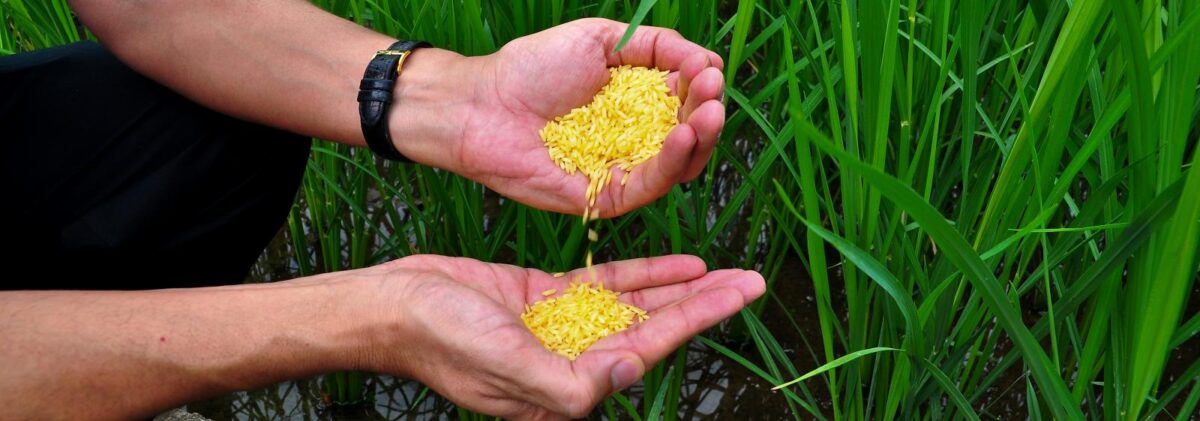- The Philippine Court of Appeals has cancelled biosafety permits for GM Golden Rice and BT eggplant, alleging safety breaches and demanding a halt until the concerns are remedied.
- The Rockefeller Foundation initiated research on golden rice in 1982.
- In the 1990s, Peter Bramley found that a single phytoene desaturase gene (bacterial CrtI) could synthesise lycopene from phytoene in genetically engineered tomatoes.
- In 2000, Ingo Potrykus of the Swiss Federal Institute of Technology and Peter Beyer of the University of Freiburg revealed the scientific details of golden rice, following an eight-year experiment.
Genetics:
- Golden rice uses Psy and CrtI genes from daffodils and a soil bacteria to increase beta-carotene synthesis in the endosperm.
Field Trials and Approvals:
- Louisiana State University Agricultural Centre completed the first field experiments and approvals for golden rice varieties in 2004.
- Additional trials were carried out in the Philippines, Taiwan, and Bangladesh.
- In 2018, Canada and the United States declared golden rice safe for consumption.
- In 2019, the Philippines legalised golden rice for human consumption, animal feed, and processing.
Controversy over its Use
- Legal problems in the Philippines in 2023 and 2024 halted commercial propagation because to controversies surrounding its use.
- Critics have expressed concerns regarding its safety, environmental effect, and efficacy when compared to alternative approaches like as supplements and dietary variety.
- Greenpeace opposes genetically modified organisms in agriculture, as well as the production of golden rice.
- Vandana Shiva, an Indian anti-GMO campaigner, has spoken out against golden rice, expressing concerns about biodiversity loss and the availability of diverse and nutritious food.
Source: https://www.irri.org/golden-rice-faqs

